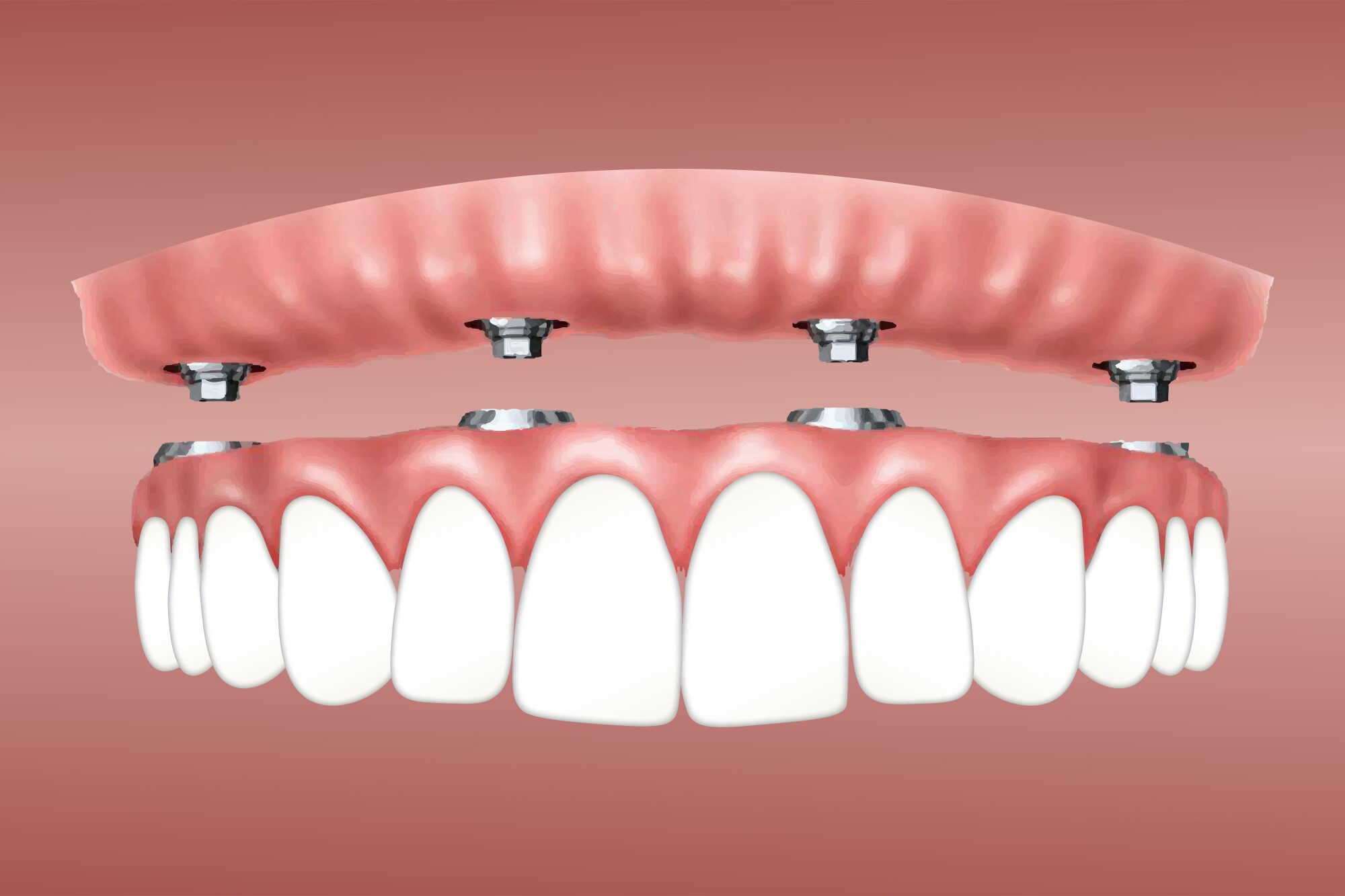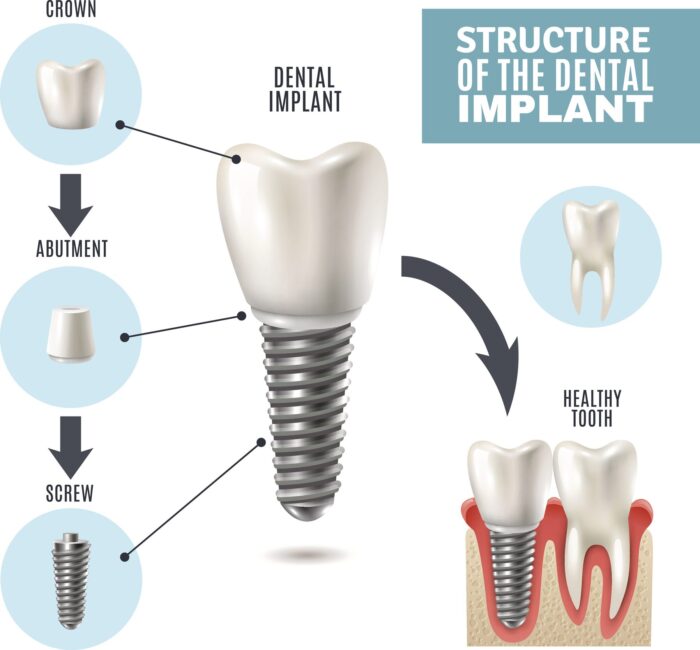What Does Dental Sense Mean?
What Does Dental Sense Mean?
Blog Article
Everything about Dental Sense
Table of ContentsAll About Dental SenseThe Basic Principles Of Dental Sense The Main Principles Of Dental Sense Dental Sense - The Facts
are clinical gadgets surgically dental implanted into the jaw to recover an individual's capability to eat or their appearance. They offer support for artificial (fake) teeth, such as crowns, bridges, or dentures. When a tooth is lost due to injury or illness, a person can experience problems such as rapid bone loss, malfunctioning speech, or modifications to chewing patterns that result in discomfort.Oral dental implant systems include an oral implant body and oral implant joint and might likewise include an abutment addiction screw. Front tooth filling. The dental implant body is operatively placed in the jawbone in location of the tooth's root. The dental implant abutment is typically attached to the dental implant body by the joint addiction screw and prolongs via gum tissues right into the mouth to sustain the affixed man-made teeth
(https://www.blogtalkradio.com/dentalsense1)Structure of The Dental Implant System selecting oral implants, speak to your dental copyright regarding the possible advantages and dangers, and whether you are a candidate for the treatment. Things to consider: Your total health and wellness is an essential factor in determining whether you are a good candidate for dental implants, for how long it will certainly take to recover, and exactly how long the implant may remain in area.
Smoking might affect the recovery procedure and decrease the long-term success of the dental implant. The healing process for the dental implant body may take several months or longer, throughout which time you typically have a momentary abutment instead of the tooth. the dental implant treatment: Very carefully adhere to the dental hygiene instructions offered to you by your dental copyright.
The Main Principles Of Dental Sense
Implant failing can cause the demand for another surgical procedure to deal with or replace the implant system. Brings back the capacity to chew Recovers cosmetic look Assists keep the jawbone from reducing because of bone loss Protects the health and wellness of the surrounding bone and periodontals Helps keep adjacent (nearby) teeth stable Improves lifestyle Damage to surrounding all-natural teeth throughout dental implant positioning Injury to the surrounding cells throughout surgery, such as sinus perforation Injury during surgical treatment (for instance, crack of bordering jawbone) Inadequate feature, such as feeling like the teeth do not attack with each other generally A feeling that the tooth is loosened or twisting in position resulting from an abutment screw loosening Implant body failure (looseness of the implant body) as a result of systemic infection, which may be more probable in individuals with unchecked diabetics issues due to neighborhood infection in bone and periodontals sustaining the dental implant body as a result of delayed healing, which may be extra likely in patients that smoke Difficulty cleaning the gum tissues around the implant, resulting in poor dental hygiene Unattended gum disease Post-surgical pins and needles because of nerve impingement or damages Constantly alert wellness care carriers and imaging specialists that you have oral implants before any kind of magnetic vibration imaging (MRI) or x-ray treatments.
FDA is not aware of any kind of adverse occasions reported for MRI or x-ray treatments with oral implants. Oral implants systems are typically constructed from materials that comply with international agreement standards of the International Organization for Standardization (ISO) or ASTM International. These standards have information of what makes a safe product.

An oral implant is a structure that replaces a missing out on tooth. With screw-like devices, the cosmetic surgeon inserts an implant right into the jawbone, and it serves as a support for a fabricated tooth, called more a crown. A tool called a joint attaches the man-made tooth to the oral implant. The crown is custom-made to fit the individual's mouth and match the color of their teeth.
The Ultimate Guide To Dental Sense
Some individuals are not qualified for dental implant surgical procedure. It is for oral doctors to operate on people with: intense illnessuncontrollable metabolic diseasebone or soft cells illness or infectionIf these concerns are settled, a person can have the surgical treatment. In, oral doctors avoid operating on people with: If individuals with any one of the above go through oral implant surgical treatment, there is a higher threat of the implant failing.

Oral implant surgery is a personalized procedure. It's not the very same for every person. The adhering to gives a basic review of what you can expect your dental expert, dental doctor, periodontist or prosthodontist to do: Position the implant surgically. Give you time to heal. Affix the article and final crown, bridge or denture.
Next off, your specialist will very carefully place the dental implant right into your jaw. If your dental implant is near the front of your mouth, your dental professional will make a momentary tooth for you to wear up until you heal.
The Only Guide for Dental Sense
Your provider can tell you what to expect in your situation. During the recovery stage, your jawbone ought to fuse to the dental implant. This process, called osseointegration, is crucial for security and long-term success. This process can take anywhere from three to 9 months. In many cases, it may take much longer.
As soon as your implant heals, your dental expert can connect the joint (little connector article) and your final remediation (crown, bridge or denture). This usually takes about one hour to finish and might call for a second small surgical treatment. You shouldn't feel any kind of pain during your dental implant treatment since your service provider will certainly use medication to numb your gums.
Report this page